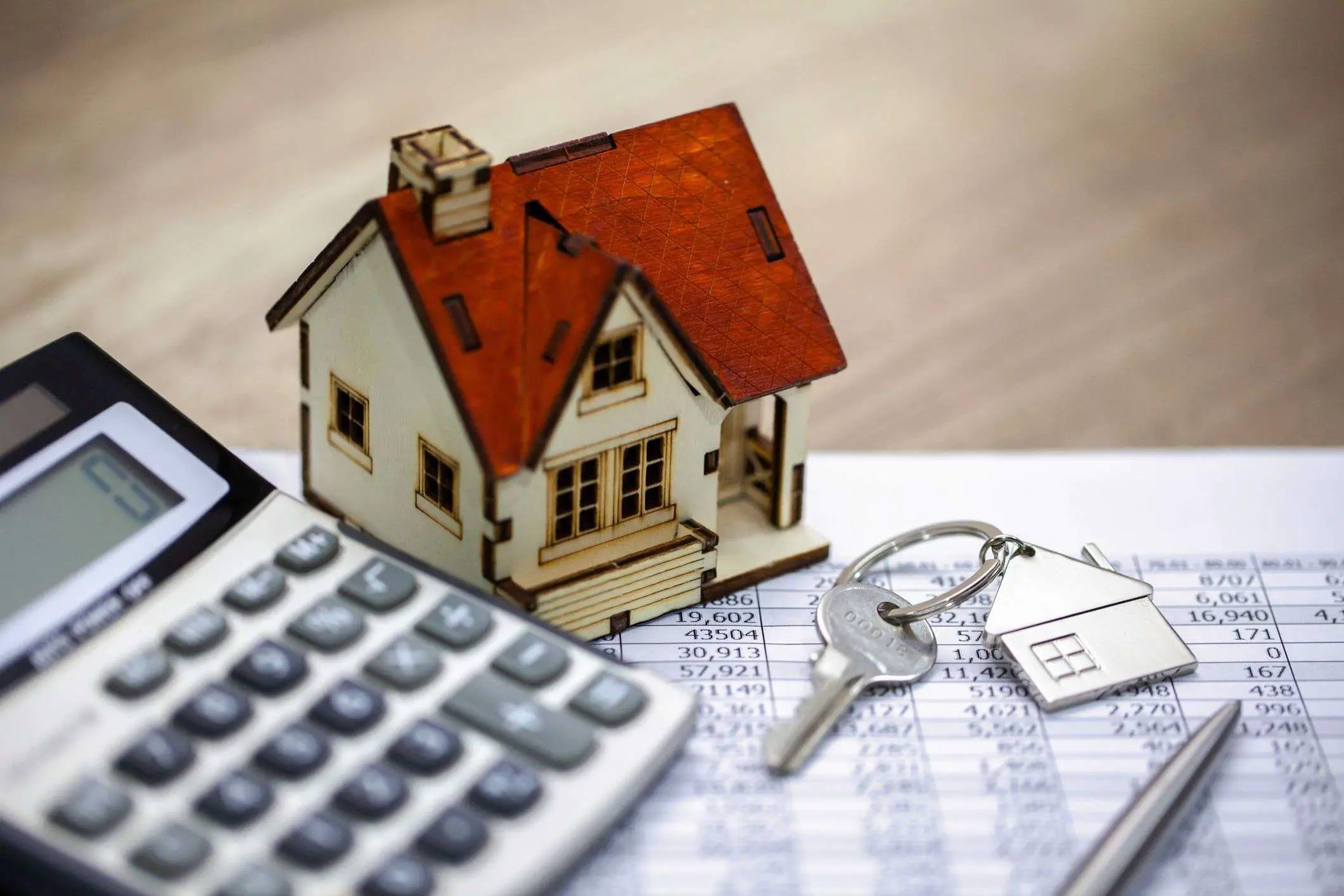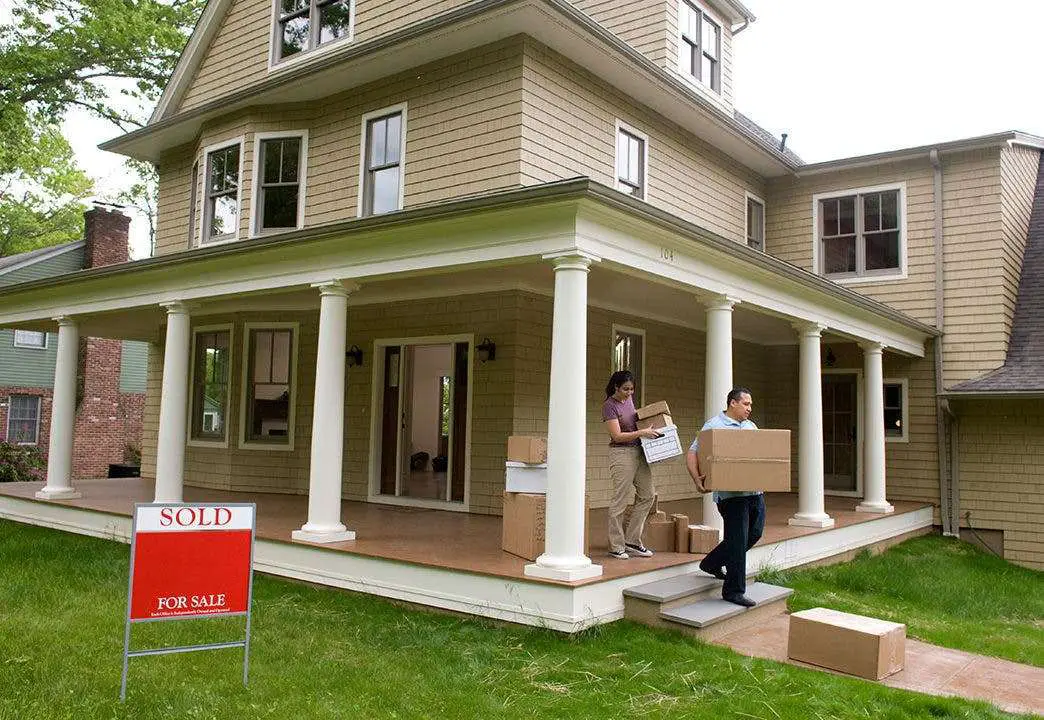How Does A Home Equity Loan Work
A home equity loan gives you access to a lump sum of money all at once. If you know how much money youll need and when youll need it to finance a remodeling project with a set budget, for example it may be the right choice.
Youll repay the home equity loan principal and interest each month at a fixed rate over a set number of years. Be sure that you can afford this second mortgage payment in addition to your current mortgage, as well as your other monthly expenses.
» MORE:Compare home equity loan rates
Con #: Your Home Could Lose Value And Be Worth Less Than You Owe
When you liquidate your equity, you increase your loan-to-value ratio, which is defined as the percentage of your home’s value that you still owe to a lender. If your home decreases in value before you’re able to pay off enough of the loan, the value could be lower than the loan amount, putting you underwater on your current mortgage payment.
An underwater mortgage makes it difficult for you to sell or refinance since your income wouldn’t be enough to cover the debt. If you then have trouble making payments, you’d be at a high risk of foreclosure.
Qualifying For A Loan
When my husband and I bought our first home, the mortgage was only in his name. Although I was working at the time, my business wasn’t established enough to be considered reliable income by the underwriters.
I worried that this detail would complicate the process of getting a home equity loan. The loan would have to be in just my name, since my husband wasn’t working.
However, when I called my credit union I was happy to find out that there was a simple fix. The mortgage to the house was only in my husband’s name, but the deed was in mine as well. Since I was on the deed, my husband just needed to sign off on the loan, saying that it was OK for me to withdraw money from the property that we shared ownership of.
Recommended Reading: What Credit Score Is Needed For Usaa Auto Loan
How To Find A Lender For An Investment Property Heloc
The best way to find a lender for a HELOC on investment property assets is to leverage your existing network. This is because not all lenders will grant HELOCs for investment properties, making them somewhat tricky to find. Investors should ask mentors and other connections to learn more about HELOC providers. Most likely, there will be a few potential options, allowing investors to choose from the best approval requirements and interest rates.
Aside from word-of-mouth referrals, investors can also research lenders online or contact previous connections to see what options are available. While it is easier to find HELOC providers for a primary residence, lenders are willing to do the same for investment properties.
Benefits And Considerations For Using Home Equity:

- The biggest risk in using home equity is that youre further leveraging your property and take on the added risk of being under water or losing the property if you cannot keep up with the payments.
- Low interest rates make using home equity an attractive option. A portion of the interest paid may even be tax-deductible, subject to limitations.
- This method is unique in that it allows you to use your homes equity before you sell, rather than to repay yourself afterwards.
- Banks do not often allow either method of the home is already on the market. Secure your home equity loan or HELOC on your current home first. At the closing of your old home, the equity you withdrew will become due in full. Make sure your projected sale price is conservative enough to cover your debts and selling expenses.
- Make sure you understand the impact on your ability to buy. Your lender on the new property will include your monthly payment in your debt ratio. Also, your credit score may suffer as a result of the additional leverage.
- Review the terms and fees. There is often a minimum draw requirement and an early termination fee.
Keeping Your Old Home as a Rental Property? Read this First.
Read Also: Rv Loan With 670 Credit Score
The Challenges Of Buying A Second Home
Second homes can be difficult to get financing for, particularly if they’re vacation properties. If designed for seasonal use, they may lack features that lenders will insist on, such as central heating. Or they may be built on leased land, or have tons of association restrictions on property transfers that can scare lenders off.
Lenders also know that when times get tough, borrowers are likely to cease making payments on a second home before they do so on their primary residence. That represents added risk, meaning a higher interest rate and tougher eligibility standards for a mortgage to buy such a property.
Pay More Than The Minimum
If you want to build equity more quickly, you can always pay more than your required payment each month. Making an extra payment each year on your own or through biweekly payments or even paying an extra $100 a month can help you chip away at your loans principal balance as well as help homeowners increase their home equity at a faster rate.
Don’t Miss: What Is An Rv Loan
You Could Have Three Mortgages For Only Two Homes
A home equity loan is often taken out in the form of a second mortgage. Combine this with the financing you will need for your second home, and its likely you will end up with three mortgages for only two properties.
Although this is important to remember, its not necessarily a deal breaker, as its no worse than having two mortgages and another loan which would likely have higher interest rates.
How We Make Money
The offers that appear on this site are from companies that compensate us. This compensation may impact how and where products appear on this site, including, for example, the order in which they may appear within the listing categories. But this compensation does not influence the information we publish, or the reviews that you see on this site. We do not include the universe of companies or financial offers that may be available to you.
At Bankrate we strive to help you make smarter financial decisions. While we adhere to stricteditorial integrity, this post may contain references to products from our partners. Heres an explanation forhow we make money.
Also Check: How Much To Loan Officers Make
What To Keep In Mind
Before you buy, remember your next home is an investment. So be sure your next property and its location meets your housing needs. Draft a list of pros and cons to help. Ask yourself why you want to move and be realistic about how much you can afford.
Estimate your available equity and find out how much you may qualify to borrow with our home equity calculator.
An investment property can deliver a nice profit. Sources of income vary:
- Renovate and sell it at a higher price
- Rent it out for a monthly income
- Hold it until it increases in value, then sell and take the profit
Home Equity Loan Vs Home Equity Line Of Credit
The main difference between an equity loan and a HELOC is that the former works like a personal loan, while the latter works like a credit card. Like a personal loan, a home equity loan has a loan term that begins as soon as funds are disbursed by the lender. The borrower pays back the principal with fixed monthly payments at a fixed interest rate.
By contrast, with a HELOC, the borrower uses the line of credit as needed. Although there are fixed-rate HELOCs, most have variable interest rates. Unlike a credit card, a HELOCs line of credit is only available for a specific time period. During this draw period, the borrower has the option to pay only interest. After the draw period expires, the borrower begins paying back the amount borrowed, along with interest.
Another difference between the two is their average interest rates home equity loans usually have higher interest rates than HELOCs. For example, home equity loans have an average rate range of 3.25 percent to 7.11 percent, while HELOCs have an average rate range of 1.99 percent to 6.85 percent as of late June 2021.
Choosing whether to take out a HELOC or home equity loan depends on your financial goals and preferences.
A HELOC might be better if:
- You have good to excellent credit and want a shot at getting the lowest interest rate possible.
- You have a home improvement project and dont know how much the final cost will be.
- You would prefer to reduce your payments during the initial part of your loan.
Also Check: Aer Loan Balance
Make A Big Down Payment
The fastest way to build equity is to come up with a large down payment. The bigger your down payment, the more equity youll immediately have in your home.
Say you buy your home for $180,000. If you put down $5,000, youll owe $175,000 on your mortgage. That leaves you with $5,000 in equity. If you put down $20,000, youll owe $160,000 on a home worth $180,000. That $20,000 in equity is far more impressive than $5,000.
Using The ”rule Of Four

When it comes to actually buying an investment property, it can be hard to know where to start.
But a simple rule of thumb is to multiply your useable equity by four to arrive at the answer.
For example, four multiplied by $100,000 means your maximum purchase price for an investment property is $400,000.
Don’t Miss: What Credit Score Does Usaa Use For Auto Loans
Advantages Of Refinancing To Buying A Second Home
There are several advantages of choosing a cash-out refinance to buy a second home, including potentially lower rates and tax advantages:
- Potentially lower interest rates: Refinancing your mortgage means you can qualify for a better rate than your existing loan terms. A cash-out refi might also have lower rates than a second mortgage.
- Flexible payment options: Many lenders offer 15-year and 30-year fixed APR repayment terms. Longer loan terms can mean a potentially higher interest rate but you have a smaller, more affordable, monthly payment.
- Extra cash for down payment: If you need a mortgage to buy another property, the cash-out lump sum can serve as your down payment. This deposit can also help you avoid private mortgage insurance .
- Potential tax advantages: Depending on the purpose of the cash-out refinance, you can claim a tax deduction. Two examples include completing capital improvements on your primary residence or maintaining a rental property. Speak with your tax preparer to discuss the tax implications of a cash-out refi.
Find out: Mortgage Refinance Tax Deductions Every Homeowner Should Know
Using Equity To Buy A Second Home: Disadvantages
While low fixed interest rates, high borrowing limits and steady payment schedules can make home equity loans appealing when buying a second home, there are some risks with this strategy.
1. If you are unable to repay loan, you risk losing both homes
If you use a home equity loan or refinance your original mortgage to purchase your second home, you are putting both your primary residence and second home at risk of foreclosure. When you default on a loan, the bank may have the ability to foreclose on your home to recoup the full value of the loan.
A second home also expands your pool of risk: if either of your homes value falls in a depressed market, you may find that the decreasing home value will have you owing more on your mortgage and home equity loans than the homes are worth at sale. If you are not planning on selling either home and can continue to afford monthly payments, this may not be a problem, but if you find yourself trying to sell either home, reduced market values could affect your ability to repay the loans.
2. May prevent refinancing of first homes mortgage loan
Having a second home loan on your primary residence may prevent you from refinancing your original mortgage loan. Some lenders will not allow refinancing until the second loan is completely repaid.
3. Funds from home equity loan may not be tax deductible
4. HELOC variable rates may fluctuate your monthly payments
Don’t Miss: What Credit Score Is Needed For Usaa Auto Loan
What Are The Benefits Of Having A Second Home
The benefits of having a second home are extraordinary. On the financial side, you can use them to create passive income and increase your overall wealth. Renting them out full-time or using them as a holiday rental lets you boost the amount of cash entering your bank account every month. There are also non-financial benefits. For many people, second homes become a kind of secret getaway a place where they can go to leave their troubles behind and escape for a couple of weeks of the year. It is often in an idyllic location, such as the coast or the mountains, allowing them to live the lifestyle they cherish. Are you thinking about buying a second home? Let help.
Is A Second Home Mortgage Right For You
A loan to purchase a home is usually the first mortgage lien recorded on a property subsequent loans depend on the amount of owners equity in the home and generally require a new appraisal. Homeowners may use the money from these second mortgages available as a lump sum home equity loan or as a home equity line of credit for any purpose. Deciding which loan is right for you depends on the loan’s purpose and your personal spending habits.
Read Also: Becu Auto Loan Payoff
How Many Home Equity Loans Can I Have
It’s possible to get more than one home equity loan on your house, but it can be difficult. You’ll need to have enough equity in your home to support your primary mortgage and multiple additional loans. Additionally, many lenders won’t want to be third in line for repayment if you run into financial troubles.
Be Ready To Define How You Will Use The Home
Assuming your current home continues to be your primary residence, you will need to tell the mortgage lender how you will use the additional home. Lending underwriters must follow the guidelines of Fannie Mae and Freddie Mac, the government-sponsored enterprises that back about 70% of single-family home mortgages. Lenders consider properties that are used as second homesrather than as investment propertiesto be less risky, which means you may be able to qualify for a lower interest rate.
You May Like: How To Get An Aer Loan
How Will You Use Your Home Equity In 2021
In the end, the way you decide to access and use your home equity is up to you. Whatever path you choose should be based on your financial situation, so dont make that choice until youve gotten all the advice you can and weighed all your options equally. If youre having trouble figuring out which solution will suit your needs best, Loans Canada can help match you with the right home equity loan product and licensed specialist.
Note: Loans Canada does not arrange, underwrite or broker mortgages. We are a simple referral service.
Rating of 5/5 based on 18 votes.
How Much Can You Borrow With A Home Equity Loan

A home equity loan generally allows you to borrow around 80% to 85% of your homes value, minus what you owe on your mortgage. You can do some simple math to estimate how much you might be able to borrow.
For example, say your home is worth $350,000, your mortgage balance is $200,000 and your lender will allow you to borrow up to 85% of your homes value. Multiply your home’s value by the percentage you can borrow . That gives you a maximum of $297,500 in value that could be borrowed. Subtract the amount remaining on your mortgage , and you’ll get the approximate sum you can borrow as a home equity loan in this case, $97,500.
Alternately, you can ditch the math and use our home equity loan calculator.
Also Check: Average Loan Officer Income
What Is A Second Mortgage
A second mortgage is another loan taken against a property that is already mortgaged. Many people consider using their home equity to finance large financial needs, but mortgage industry jargon has confused the meaning of certain terms including second mortgage home equity loan and home equity line of credit . A second loan, or mortgage, against your house will either be a home equity loan, which is a lump-sum loan with a fixed term and rate, or a HELOC, which features variable rates and continuing access to funds.
Using A Mortgage To Buy Your Home
You may prefer to go the route of a traditional mortgage, as many homebuyers do, if you would rather not explore investment opportunities, or have less than a 20% down payment.
If you don’t play the stock market or wish to spend time exploring investment opportunities that could result in tax deductions, that aspect of the home equity line of credit would be of little use to you. With a mortgage, your involvement doesn’t have to extend beyond the monthly payments.
With a traditional mortgage, you don’t need to have a 20% down payment. In the event you don’t have that much or would simply prefer not to put down that much, you have the option of lower down payments.
Don’t Miss: Minimum Credit Score For Rv Loan
